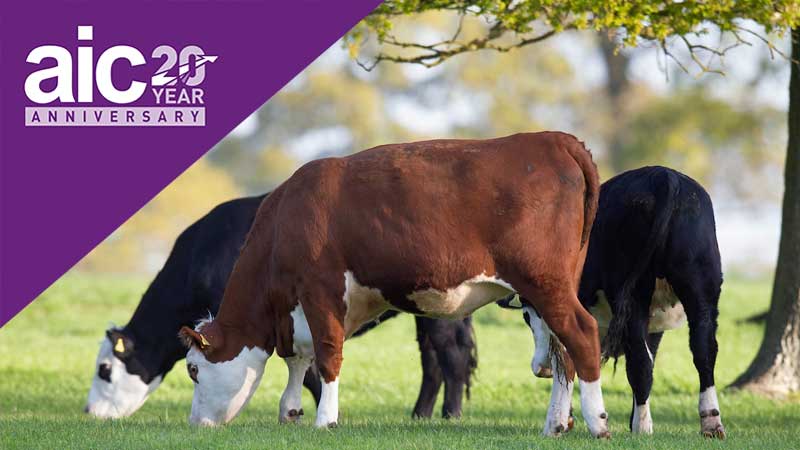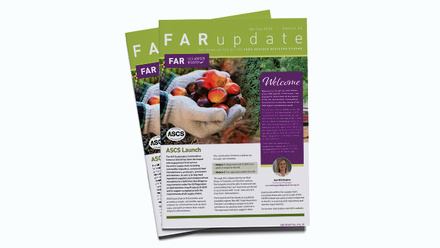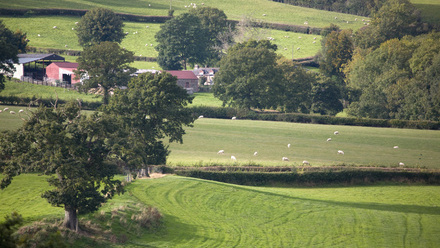AIC at 20: Advocating sustainable feed ingredients in support of British beef production

As AIC marks 20 years as the UK agri-supply industry’s leading trade association, we're looking back at some of its greatest achievements since it was founded in 2003.
Each week throughout 2023, we’ll explore a major achievement where AIC represented its Member businesses, promoted the benefits of modern commercial agriculture in the UK, and supported collaboration throughout the food chain.
As part of Great British Beef Week (23-30 April 2023) - a week-long celebration of British beef’s quality, taste and world-leading farming credentials - we're examining the huge amount of work done by AIC and the cattle feed industry in support of sustainable UK beef production.
Represented and supported by AIC as its trade association, the feed industry is working in support of modern, sustainable, commercial beef production in a wide range of ways.
Sourcing feed ingredients responsibly
Nutrition is critical in producing healthy beef cattle to a required specification - it's the feed that helps make quality British beef.
The responsible sourcing of feed ingredients, such as soya and palm oil, is essential for a sustainable food chain.
To that end, AIC Services developed a responsible soya sourcing module as part of its Feed Materials Assurance Scheme (FEMAS), which covers all feed ingredients intended for direct feeding to animals or for inclusion in compound feeds and blends.
Participating businesses produce livestock feed to certified Standards, including on sustainable soya sourcing. AIC Services also manages a Palm Oil Credit Scheme (APOCS) for Members to facilitate the purchase of responsible palm oil.
Watch the video below for an overview of the UK feed sector.
Using co-products in cattle feed
The UK beef sector has access to a wide range of sustainable feed co-products from food processing and energy sectors, as well as the more typical feed wheat, barley and maize you would expect to find in a list of cattle feed ingredients.
Flour and rice milling produces low environmental footprint wheat feed and rice meals for use in beef rations. Sugar production also provides sugar beet pulp for beef feeds.
Beer brewing and whisky distilling processes are excellent sources of highly nutritious brewers and distillers’ grains for beef finishing too.
Bio-ethanol production also provides grains for beef feed, as does oilseed crushing for sunflower and rapeseed oil which produces seed meals with good nutritional benefits for beef animals.
Value of Former Foodstuffs
Food products for human consumption which fail to meet a manufacturer’s required standards can be classed as a "former foodstuff", destined for use in beef feeds.
For example, chocolates, crisps and croissants have an oil content meaning they are "fat-fortified" and this offers a nutritional value when used to make cattle feed. Former foodstuffs have also typically undergone heat processing, meaning the starch and other nutrients are more easily digested.
Did you know that more than 650,000 tonnes of former foodstuffs are processed each year in the UK? That's why the UK Former Foodstuffs and Processors Association (UKFFPA) was set up as an AIC affiliate in 2014.
Read more about UKFFPA here and watch the video below to find out more.
Novel feed technologies
Carbon capture technologies are bringing forward exciting opportunities for the use of single cell proteins in feed. Seaweeds (macro and micro algae) can produce carbohydrates, oils, protein, vitamins, pigments and organic materials for beef diets.
Meanwhile, amino acids for feed now play indispensable roles in improving the efficiency of animal protein production, and contribute to increasing protein supply.
Elsewhere, methane-mitigating feed additives inhibit methanogens in the rumen, and subsequently reduce enteric methane emissions from beef animals. The feed industry is involved in a lot of R&D in this area.
Measuring cattle feed sustainability
The Global Feed LCA Institute (GFLI) feed material database means that feed professionals (including Registered Feed Advisers) can now tell their beef farming customers what the emissions figure is for the beef diet they are supplying.
Life Cycle Analysis (LCA) data on feed is vital for beef farmers to help share with their customers (meat processors, food service companies and retailers) complete and accurate metrics for the beef they produce on their farms.
Find out more about how Registered Feed Advisers are qualified to help beef farmers on sustainability by watching the video below or read more here.
Make sure you're following AIC on Twitter and LinkedIn for regular updates.
Visit the AIC at 20 webpage for more content like this.






